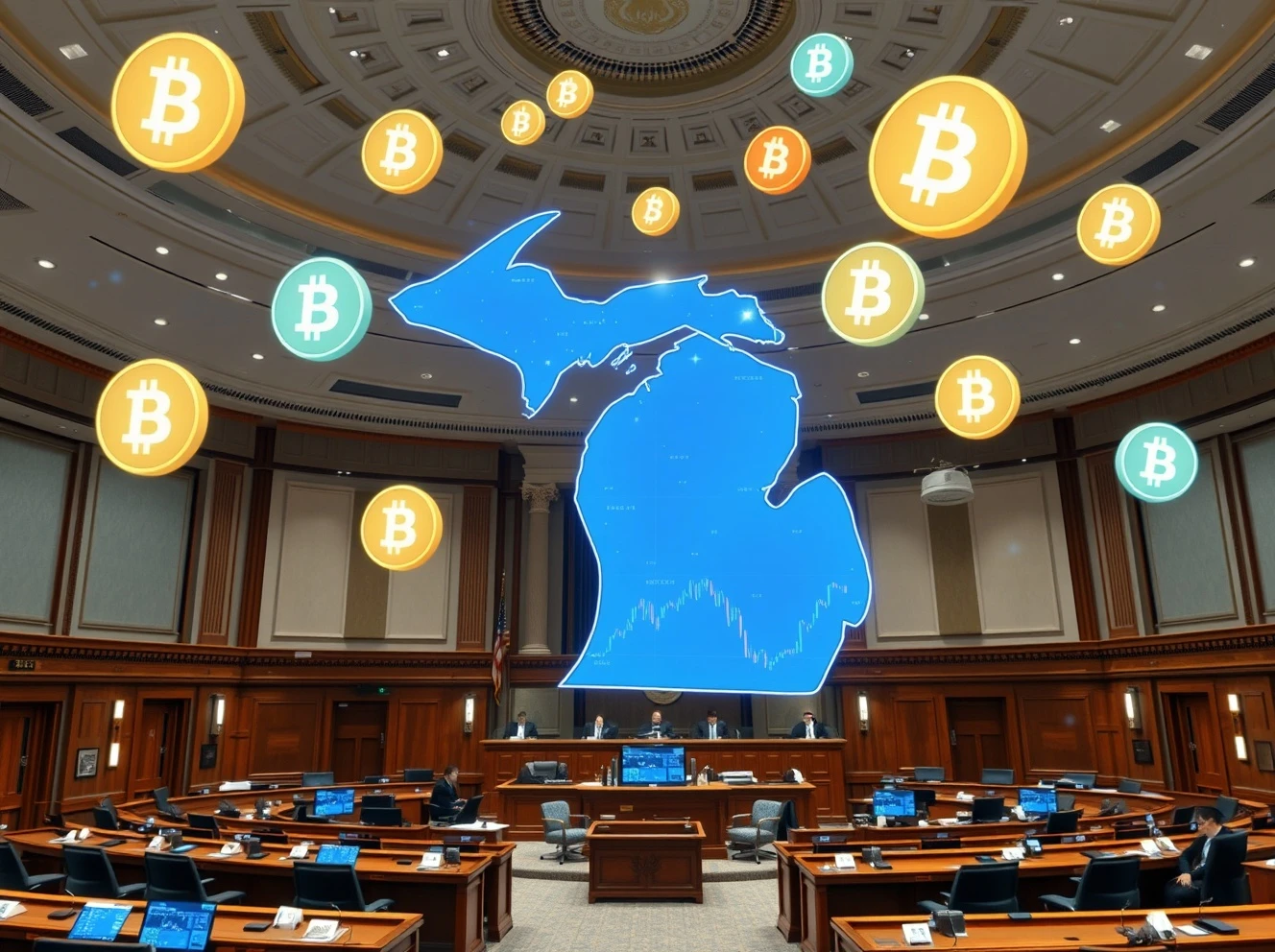Michigan lawmakers have taken a groundbreaking step toward establishing the nation’s most comprehensive state-owned crypto reserve, potentially transforming how public funds are managed in the digital age. This revolutionary legislation could position Michigan as a pioneer in governmental cryptocurrency adoption.
Michigan’s Crypto Reserve Legislation Advances
House Bill 4087 has successfully progressed to its second reading after months of legislative stagnation. Consequently, this development signals strong bipartisan support for digital asset integration into state treasury management. The bill specifically authorizes investment of up to 10% of Michigan’s countercyclical budget and economic stabilization fund into cryptocurrency assets.
Secure Crypto Reserve Custody Requirements
The legislation mandates rigorous security protocols for all state-held digital assets. Furthermore, these requirements include:
- Government-controlled private keys with multiparty authorization
- Full encryption and restricted smartphone access
- Multiple secure storage locations for asset protection
- Regular security audits by qualified third parties
- Qualified custodians including banks and trust companies
Unexpected Opposition to Crypto Reserve
Surprisingly, the Michigan Bitcoin Trade Council opposes the bill despite its progressive nature. They argue that including cryptocurrencies beyond Bitcoin introduces unnecessary centralization risks. Additionally, they emphasize that Bitcoin remains the only truly decentralized digital asset suitable for state-level investment.
National Landscape of State Crypto Reserves
Michigan joins Massachusetts and Ohio as states with advanced crypto reserve proposals. Meanwhile, several other states including New Hampshire, Arizona, and Texas are exploring similar legislation. However, Montana, Wyoming, and Pennsylvania have rejected comparable measures, creating a diverse national landscape.
Federal Implications of State Crypto Reserves
The U.S. House of Representatives recently advanced an appropriations bill directing the Treasury Department to study strategic Bitcoin reserve creation. This federal movement complements state-level initiatives and indicates growing institutional acceptance of cryptocurrency as a legitimate asset class.
Economic Considerations for Crypto Reserves
Market timing remains a significant concern for Michigan’s proposed crypto reserve. With Bitcoin trading above $116,000, some analysts caution about potential peak valuation purchases. Nevertheless, proponents argue that dollar-cost averaging and long-term holding strategies mitigate timing risks.
FAQs About Michigan’s Crypto Reserve
What percentage of state funds can Michigan invest in cryptocurrency?
The bill allows investment of up to 10% of the state’s countercyclical budget and economic stabilization fund.
Which cryptocurrencies can the state purchase?
The legislation permits investment in various digital assets, not limited to Bitcoin, though specific selection criteria will be established.
How will the state secure its cryptocurrency holdings?
Assets must be held through secure custody solutions, qualified custodians, or registered investment company products with strict security protocols.
Why does the Michigan Bitcoin Trade Council oppose the bill?
They believe only Bitcoin should be included due to decentralization concerns with other cryptocurrencies.
When could the crypto reserve become operational?
The bill must pass additional legislative stages and receive gubernatorial approval before implementation.
How does Michigan’s approach compare to other states?
Michigan joins a small group of states with advanced crypto reserve proposals, while others have rejected similar measures or are still studying the concept.








